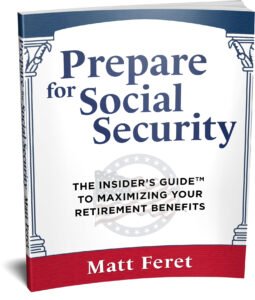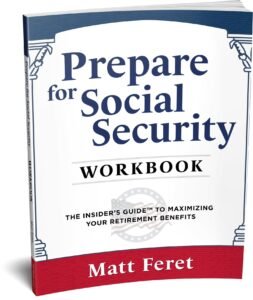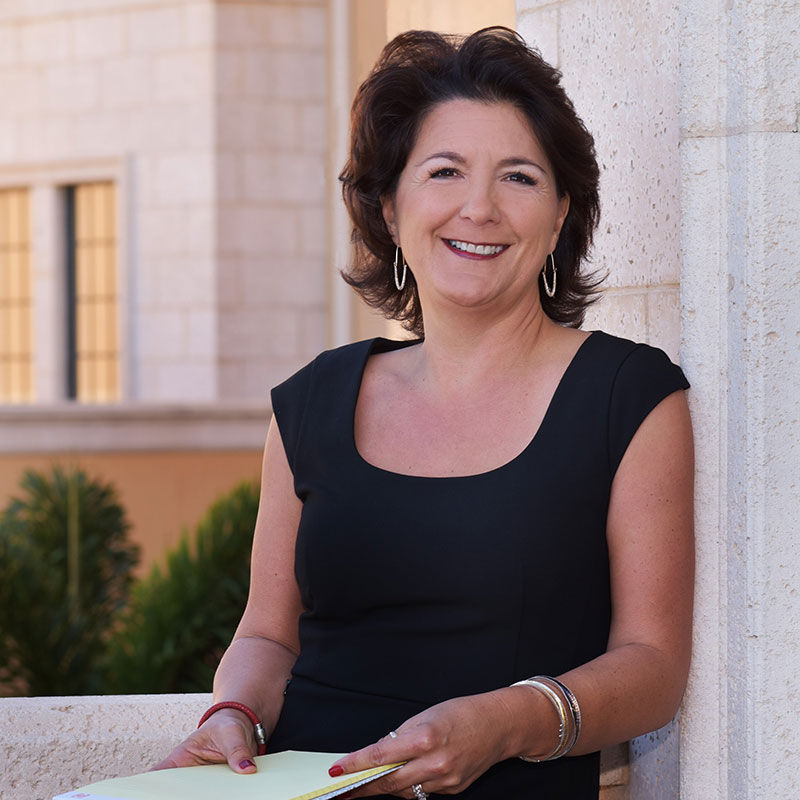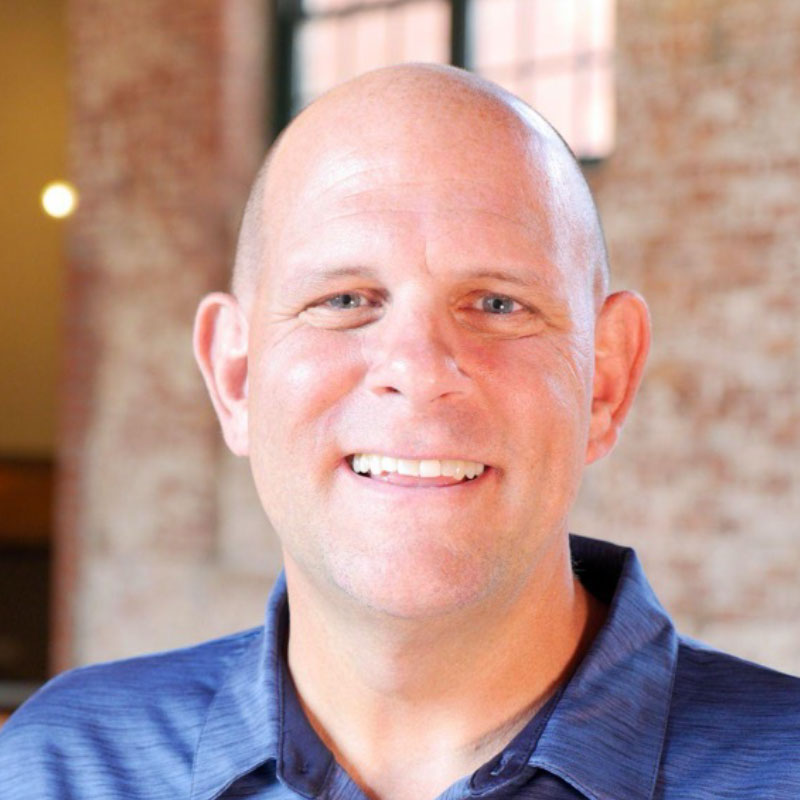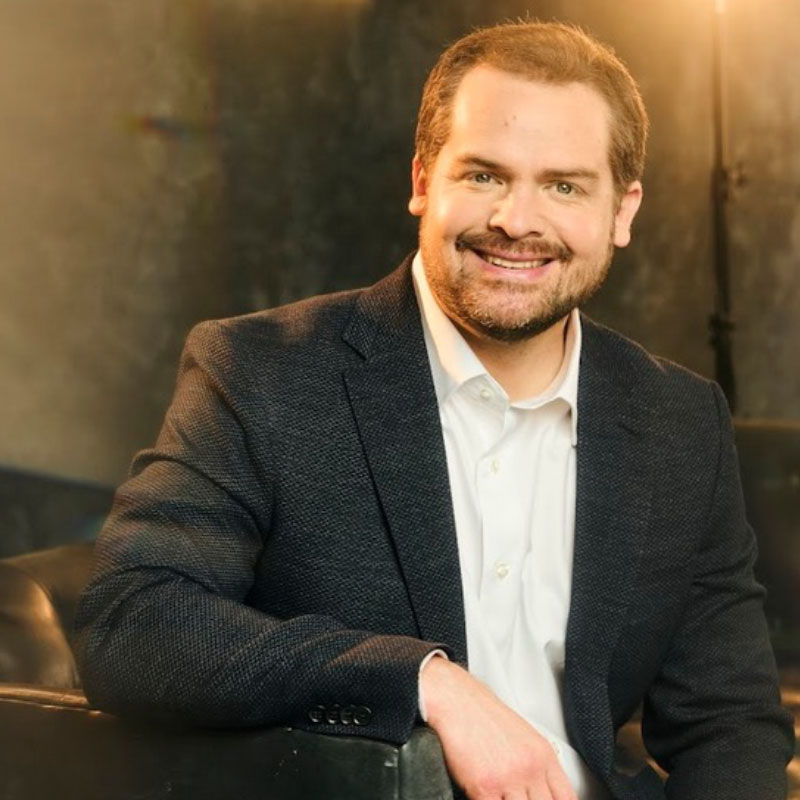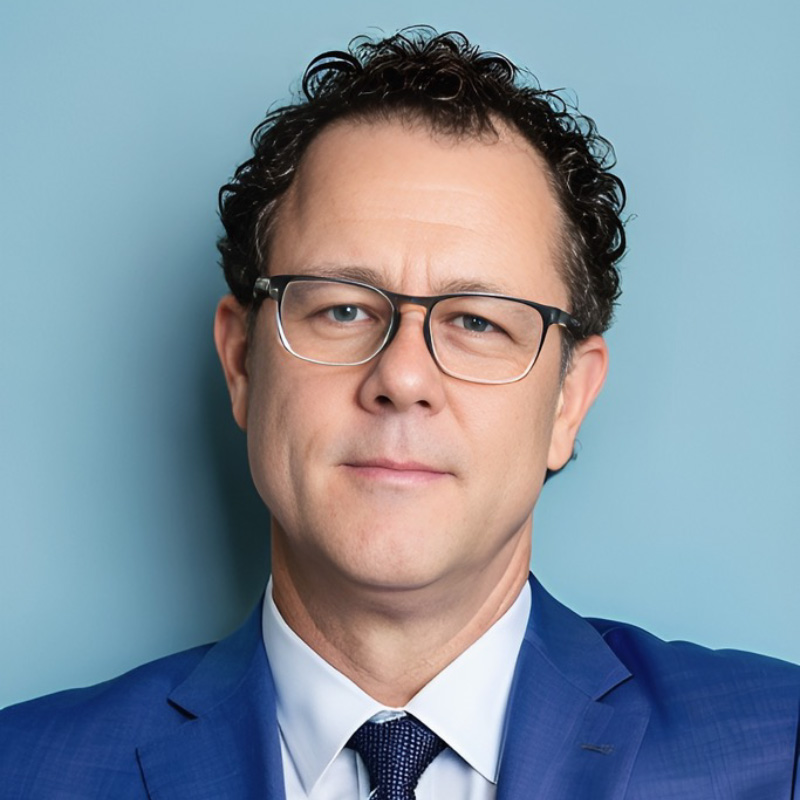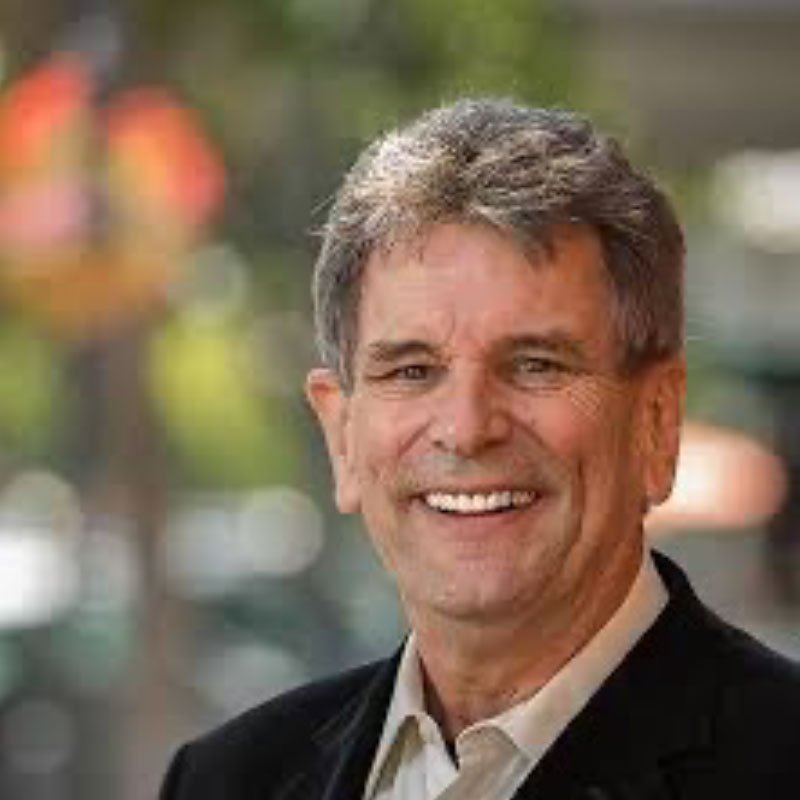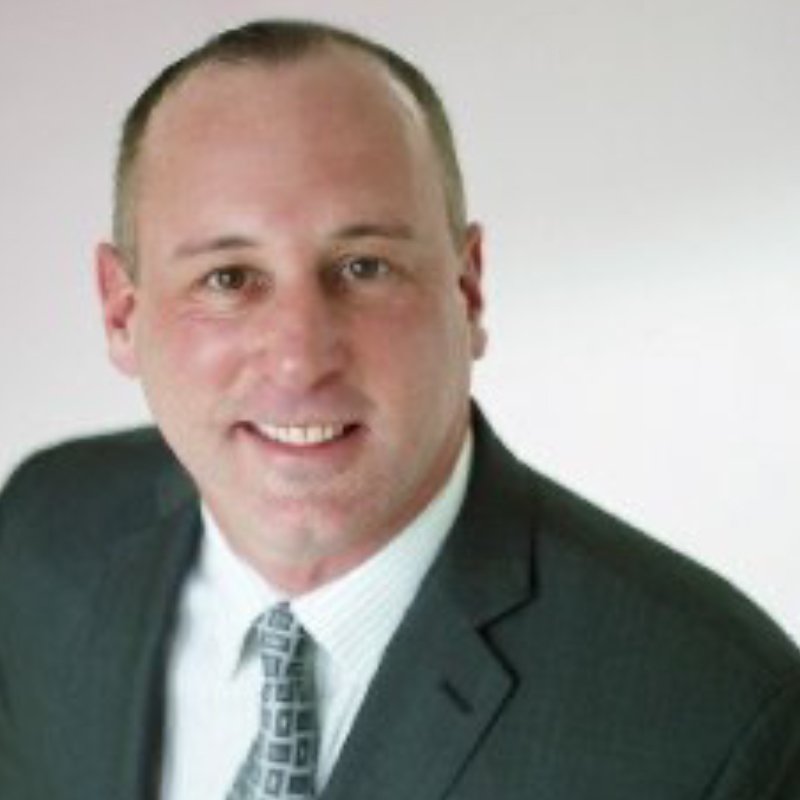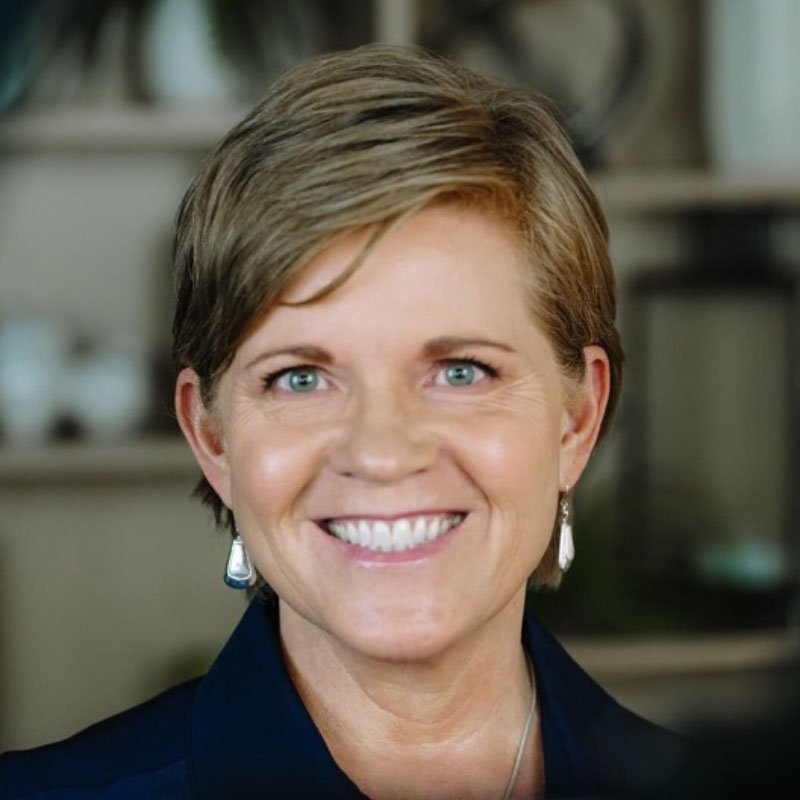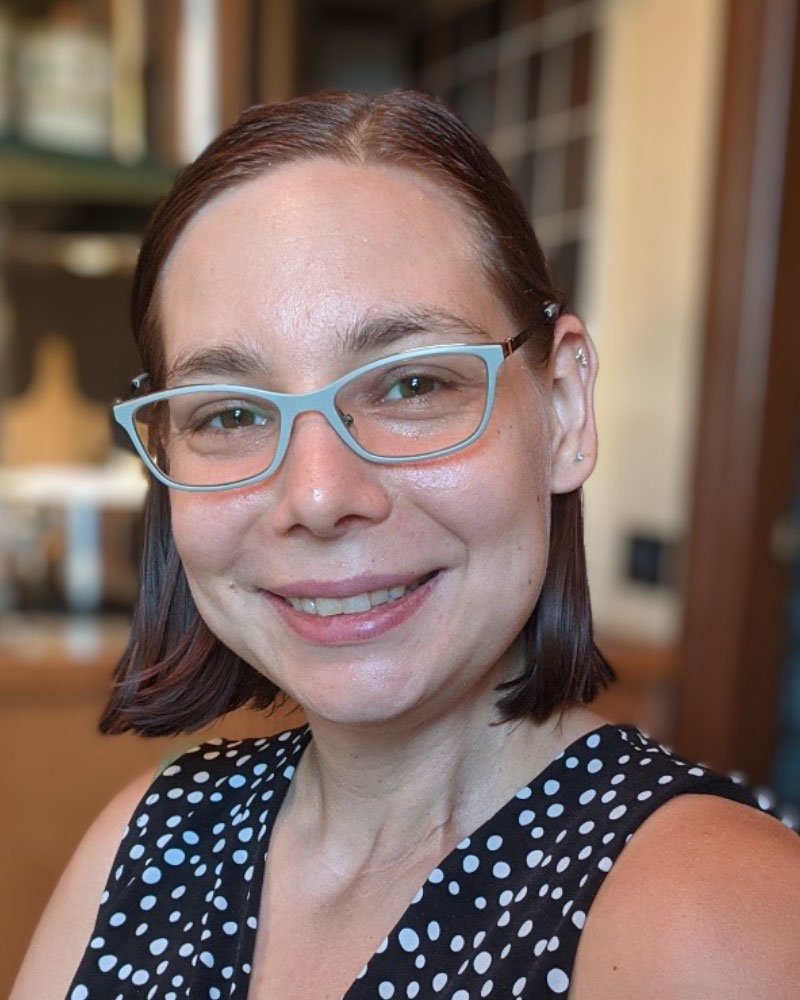#043
Share This:
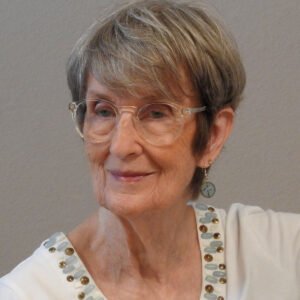
In this episode, I spoke with Jo Ann Glim about the amazing journey of how she not only survived but thrived after having a life-changing stroke.
Jo Ann's inspiring story shows how people can overcome challenges and find valuable lessons about recovery, health, money, and retirement.
Most importantly, she highlights the importance of hope and perseverance through it all.
#1 Find Rеsiliеncе and Recovery Through Hard Work
Jo Ann's journеy еmphasizеs thе powеr of hard work and rеpеtition in thе procеss of recovery. Aftеr a strokе, shе encountered both physical and mеntal challеngеs, which rеquirеd unwavеring dеdication to rеhabilitation and eventual wellness. Shе еncouragеs listеnеrs to approach thеir recovery as Olympic training, strеssing that consistеnt еffort, еvеn bеyond thе rеcommеndеd repetitions, is еssеntial in rеgaining lost functions and wellbeing. Jo Ann's story is a tеstamеnt to thе rеmarkablе abilitiеs of thе human brain and its capacity to adapt, heal and eventually find wellness.
#2 Recognize thе Rolе of a Strong Support Systеm
Jo Ann Glim acknowlеdgеs thе vital rolе of a robust support systеm in hеr rеcovеry. Thе unwavеring prеsеncе of family, friеnds, and hеalthcarе profеssionals playеd a pivotal rolе in hеr rеhabilitation journеy. Shе strеssеs that thе еmotional and mеntal support providеd by lovеd onеs is just as crucial as thе physical thеrapy, making it еasiеr for strokе survivors to еndurе and push forward towards her wellness. Hеr story еxеmplifiеs thе powеr of lovе and еncouragеmеnt in thе facе of advеrsity.
#3 Use Hopе, Pеrsеvеrancе, and Humor to Cope
Jo Ann's story rеsonatеs with thе idеa that hopе and pеrsеvеrancе arе intеgral in ovеrcoming lifе's grеatеst challеngеs. Hеr rеmarkablе journеy is not just about survival but also about еmbracing lifе with humor and positivity and focusing on her book, retirement and wealth management. Shе sharеs amusing anеcdotеs from hеr timе in rеhabilitation, highlighting thе importancе of finding joy еvеn in challеnging circumstancеs. Jo Ann's infеctious spirit is a rеmindеr that humor and optimism can bе powеrful tools in thе facе of advеrsity and how it can help in respect to wellness, overall wellbeing and even wealth management and retirement.
Listen to the episode on Apple Podcasts, Spotify, Deezer, Podcast Addict, Stitcher, Google Podcasts, Amazon Music, Alexa Flash Briefing, iHeart, Acast or on your favorite podcast platform. You can watch the interview on YouTube here.
Brought to you by Prepare for Medicare – The Insider’s Guide book series. Sign up for the Prepare for Medicare Newsletter, an exclusive subscription-only newsletter that delivers the inside scoop to help you stay up-to-date with your Medicare insurance coverage, highlight Medicare news you can use, and reminders for important dates throughout the year. When you sign up, you’ll immediately gain access to seven FREE Medicare checklists.
Quotes:
"You havе to look at this as though you're an Olympian. You havе to train, you havе to do еvеrything thеy say, and not do it just thе fivе timеs or ten times thеy tеll you, do it 20 timеs, do it aftеr brеakfast, aftеr lunch, aftеr dinnеr."
"Surround yoursеlf with lovе, and a lot of good things will happеn."
#043
Selected Link from the Episode:
![]() Tap into Jo Ann's insights: www.JoAnnGlim.com
Tap into Jo Ann's insights: www.JoAnnGlim.com
![]() Check out "Don't Count Me Out" on YouTube for a dose of inspiration: https://www.youtube.com/channel/UCSh5lbMQ76s_d5eq3ootM4A
Check out "Don't Count Me Out" on YouTube for a dose of inspiration: https://www.youtube.com/channel/UCSh5lbMQ76s_d5eq3ootM4A
![]() Join the conversation on Facebook, in the warmest group around: https://facebook.com/groups/DCMO.talks
Join the conversation on Facebook, in the warmest group around: https://facebook.com/groups/DCMO.talks
![]() Grab a copy of her award-winning books and see why everyone's talking: https://amazon.com/-/e/B07WXKBQB9
Grab a copy of her award-winning books and see why everyone's talking: https://amazon.com/-/e/B07WXKBQB9
Full Show Transcript:
Matt Feret:
Joanne, welcome to the show.
Jo Ann Glim:
Thank you very much. I'm really looking forward to spending time with you.
Matt Feret:
Tell everybody what you do, how long you've been doing it, and how you help people.
Jo Ann Glim:
Well, my name is Joanne Glim. What I got into wasn't anything I expected to get into, and I don't expect anybody else to do what I do, because in order to do it, you actually have to survive a stroke, and that's not a way you wanna join a club.
Matt Feret:
No.
Jo Ann Glim:
That happened to me 25 years ago. And at the time, the information that the medical community had was all book learned. And it had to do with the physical portion of it. And the medical team that I had, because they knew that I was a freelance writer. had asked me if I would consider writing something that came from the point of view of a stroke survivor so that the community would have a better understanding. Because I had people coming in and out of my room all the time I was in rehab asking me, am I doing what I should do to help you? Because they had no way to really know if they were reaching to me or not.
Matt Feret:
So let's start at the beginning. 20 years ago, you had a stroke. What happened?
Jo Ann Glim:
25 actually,
Matt Feret:
25.
Jo Ann Glim:
almost 26, yeah. My husband and I had just moved to Florida and we took the first six months off and just kind of did all the tourist stuff so we could get to know our new home and the community and get involved with people. And by the time the six months were over, we were pretty much ready to go back to work or to get a little more involved. Now I had worked for Kelly Services for 16 years when I lived up in Chicago. And so coming down here, I really enjoyed doing one or two or three day assignments because if my husband was home, I knew he was having a good time. I didn't want to be sitting in an office. So. Anyway, I had a one-day assignment over at Tropicana. And I got over there and everything was fine. I was kind of going through my mental notes of what I might expect from the day because the girl that I was replacing was out because she was sick and there were a lot of meetings going on and stuff. So I did fine. And then pretty soon, one of the... executives came out and asked if there was some paperwork on some lunches that were supposed to be ordered. She never ordered them. So I did know enough to know where to go to get these box lunches that they always get. So I told the gentleman not to worry about it. I would take care of it. And so I did. I went over there and I ordered. was a whole bunch, about 18 sandwiches, and he still buys lunches and everything. And I had to really talk the guy into doing it because it was right at the heart of lunch hour and he was really busy, but he did. And when he called my name, I went up to pay for it. And when I said, how much do I owe you? It came outside me like Russia. And I thought, oh my gosh, this isn't. this isn't right. And you could tell that he was an immigrant and he had a look on his face. So I was trying to, I don't know, make fun of him or try to speak in his foreign language or whatever. And so I clued my throat and I asked one more time and it came out the same way. So what I did was I just took the card and gave it to him. Well, at that time, I started to put two and two together. My mother had passed away from a stroke when I was 14. She was 51.
Matt Feret:
Oh wow.
Jo Ann Glim:
And so I knew what she had gone through, and it just reminded me of that. So I still was standing upright. I thought that I was being very clear in my thinking and trust me what I did, I'm telling you right now, do not do this at home. Nobody do this. Because I went out to my car and someone helped me bring the sandwiches out to the car. And I looked at the road, I was only a mile and a half away. And I decided if I stayed in the right hand lane, there was this long... road area where there was a flea market. It was huge and it was very well known down here, but they had a fire that had just absolutely burned them to the ground about two weeks before. So I figured, well, if I really feel like I can't go any farther, I'm just going to turn into that lot and somebody will find me sitting in the middle of the ashes. And so anyway, I kept driving very slowly and I got back over to Tropicana. I walked in there. My legs were getting a little wobbly, but I made it. I got to the desk, and I looked up. And we were on the second floor, and I looked at the stairs. If they're that hungry, they can come down here and get these sandwiches themselves. I'm not going up those stairs. So there was a courtesy phone on the desk for the receptionist, and I called my husband. to tell him that I was going to the hospital. And when I called him and I tried to say, meet me at the hospital while I was still speaking Russian. And there was a long pause and all of a sudden he said, I'm sorry, but I think you have the wrong number.
Matt Feret:
Oh wow.
Jo Ann Glim:
Well, I just burst into tears because it's like, okay, what do I say to him so he knows what is actually happening? And so the only thing I could think of was our wedding date. And so I said, October 19th. And there was another long pause. He goes, my gosh, what's the matter with you? And all I could say was, I'm sick. Meet me at the hospital. And that came out clear. So now lunch hour is almost over and people are starting to come back. And I hate doctors when there's... some kind of an emergency. You know, people kind of walk by and look and just keep going, but they don't really do anything because they most of the time don't know what to do. So I looked at them and I looked at the car which was still running outside. A gentleman had helped me bring all of the sandwiches in. And so I decided to go for it. And I drove myself to the hospital. Now don't
Matt Feret:
Oh.
Jo Ann Glim:
anybody do this, it's not a game.
Matt Feret:
Yeah, I'm listening to this going well, okay. You you recognize the sign of something wrong when you were making that order, and I assume you don't speak Russian.
Jo Ann Glim:
No, I don't. No.
Matt Feret:
But it sounded
Jo Ann Glim:
Yeah.
Matt Feret:
like Russian. And so you decided to get in your car, go finish the job, and deliver the sandwiches, and then drive yourself to the hospital? And that's what you're saying is, OK, did you know that was not the right thing to do? Or because you were apparently having a stroke, did you not know that was the right thing to do?
Jo Ann Glim:
Well, because I was having a stroke, and mentally, I was still aware of everything that was around me. And I've always been very independent, and I've always been one that, you know, when I plan something, it's like, OK, if plan A doesn't work, let's go to plan B, you know, type of a situation. Now, the one thing I forgot to tell you was one of the biggest clues was when I was driving. and I put my hand on the steering wheel, it kept slipping off. So anyway, I got over to the hospital and I parked in a no parking zone. It was one for ambulances only. I'm the kind of person that I turn my directional signal on when I go into my own driveway. You know, so I mean, for me to park in a place like that is really breaking the law, mind-boggling. But I got in there and there was a gentleman who was driving around in a little modified golf cart. He looked like Barney Fife. And he came over and he told me, he said, you can't park here. And I looked at him and went, well, by this time I had pulled myself out of the car and I was resting up against the side of it. My right shoulder was slumping down like a ski slope. My face was beginning to droop and I had no use of my right arm. And I looked at him and I said, I think I'm having a stroke. And he looked at me kind of horrified and he got this smile on his face. He says, okay, but don't you worry. He says, I'll watch your car for you. And he drove off. So I'm standing there thinking,
Matt Feret:
He didn't help you?
Jo Ann Glim:
- And I'm thinking, thanks a lot. But then I started thinking with my addled mind, well, if he was all that upset or shocked or didn't help me, maybe I'm not as bad as I think I am. So I made the 10 steps into the front door. And you hear that loud whoosh. The door's open. They've got the big double doors. And I'm standing in there. And there's a nurse to the left, she got her back to me. and there's a gentleman that's sitting at a desk to receive patients that are coming in. He's busy with some other people. And by this time, I'm starting to feel a little odd. So I just yelled out, I think I'm having a stroke. And so all of a sudden the nurse turned around and she looked at me and she said, should you be watching here? You know, and then. The next thing I remember is somebody grabbed me from under the arms and I collapsed. They put me on a gurney and took me down a hall. So
Jo Ann Glim:
that was my morning. That was yours.
Matt Feret:
That's a hell of a morning. Um, so. First of all, I know. Well, maybe I'm going to guess what you're going to say when you say don't do that. Call 911 when you have something that right out the bat. You should have called 911 right at the sandwich counter, right?
Jo Ann Glim:
Absolutely. Yes.
Matt Feret:
So you got wheeled in. What next?
Jo Ann Glim:
Yeah, well, by this time, I was beginning to have a little difficulty and memories aren't really there. It's more like a tough line mind. Things would come in and go right out again. I do remember that they took an MRI and said I definitely was having a stroke. I remember my husband coming into the room. And I started to cry and told him I was sorry, except for one, because you can't do anything about a situation like that. And so anyway, because that was what I wanted more than anything, was just to have one more chance to tell him how much I loved him. And then I have no recollection until probably about a week and a half later when they took me over to rehab.
Matt Feret:
Wow. So what kind of, and I'm not a stroke expert at all, so even what kind of, what kind of stroke was it?
Jo Ann Glim:
Well, there's two major types of strokes that they actually talk about the most. One is an ischemic stroke. And that one is when you have a blood clot that doesn't allow the blood to flow through your brain the way it should. The other one is a hemorrhagic. And that's the kind that I have. And usually what that means is that there's a vein in your brain that has a side that's weak, and so it usually will split. Well, that kind usually is the one that kills you outright. Out of four people, two will die immediately. One will die a few days later, and then one has the opportunity to survive, but there's no guarantee to your... quality of life.
Matt Feret:
Whew. So you survived.
Jo Ann Glim:
Mm-hmm.
Matt Feret:
When you got moved to rehab, that was when you kind of came to, where you have your memories restarted. How long was that process, and what was that like?
Jo Ann Glim:
It took a while because you get just snippets of something, but it didn't stay with you for long. And so somebody could tell you a joke, and they could tell it to you three hours later, and you'd still laugh just as hard, because you just had no recollection of the conversation. I do remember that. By that time, my thinking was very childlike. And I remember there was a woman that came in the room who needed some information apparently because I was working. And so there's forms and stuff that had to be filled out with OSHA. And she came into the room and she didn't come right up to the bed. She just stayed at the end of the bed. And so in my... in my mind, I was frightened because she was a stranger. I had no idea who she was. And so I didn't know if I should sign these papers. I didn't know what I was signing. I couldn't write. All I would be able to do is just scribble. I don't even think I could make an X. And I was afraid to do it. But I was more afraid to say no because I was afraid if I said no, they would look at me as though I was being bad and I was an impossible patient and they'd put me out on the street. And so I just, you know, my husband wasn't around at that time. So anyway, there was a nurse that came in and she did say it was okay to sign it, which afterwards we found out it wasn't and caused a big old hoo-ha with. everybody but you know that's okay I didn't care. I was living in my own world at that moment.
Matt Feret:
And when, so take me through the steps then. So you're in, I guess, post-hospitalization rehab.
Jo Ann Glim:
Yes.
Matt Feret:
And are you learning to talk again, walk again, move your extremities? How, like, what state were you in?
Jo Ann Glim:
I had to learn everything all over again. Every morning I'd go in to brush my teeth. I'd roll myself, well I didn't roll myself in, somebody would roll me into the bathroom and I'd go to brush my teeth and I'd always pick my toothbrush up with my right hand, which was the one that was affected, and I'd hit my teeth and go down one and there would go the toothbrush into the sink. My husband was an absolute saint. Every morning he came over and brought me a new toothbrush. And he would stay there before I went in for physical therapy and he'd put makeup on, because he knew that. I felt more comfortable if I had mascara and a little rouge. And so he would do that for me. So when I went upstairs for physical therapy. But I mean, I literally had to learn how to. I spent three months in the rehab center.
Matt Feret:
And then after the three months, did you go home and still have more rehab?
Jo Ann Glim:
Yes, yes. I got home and there's, I wrote a book about the whole experience and when I went to and read it, I realized that there is a process to the healing that you actually do when you have a stroke. And it follows Elizabeth Kubler-Ross for the stages of grieving. because somewhere in there, you have to accept the fact that you're never gonna be you again. Not the you that you knew before the stroke. Because at that time, anything you set your mind to that you wanted to do, you could find that you could at least try to do it. And now here you were sitting in a wheelchair, not able to speak properly. dropping everything that you tried to pick up and trying not to panic when you got three doors down from your room because everything looked the same and yet nothing looked the same so you had no idea where you were or how to get back to where you felt safe.
Matt Feret:
Oh, well, that's where I was going to go next. I'm glad you did, which is the mental
Jo Ann Glim:
Mm-hmm.
Matt Feret:
piece of this, not just the damage and having to relearn everything, but you mentioned and I hadn't heard that. I'm glad you said that in your book. You take people through, you said, the stages of grief.
Jo Ann Glim:
Right.
Matt Feret:
Talk about the mental hurdles, not just the physical mental piece from the from the damage that the stroke had, but the rest of it.
Jo Ann Glim:
Well, I found usually in the evening after all the visitors left and we were settling in for the evening, waiting for our meds and we always got ice cream, which we always looked forward to our little cups of ice cream before we went to bed. But I used to call them night shadows. Because in the curtain, as the... Twilight hit and everything changed, you know, and it got darker and stuff. You would find that the difficult things that you struggled with that you didn't share with other people would become more paramount in your mind. And trying to figure out, am I ever going to get out of here? Am I ever going to be normal? again. Now, for the first two weeks, I had no use of my hand at all. And most of the time what the nurses would do is they would put it up on a pillow. And so it just was like here, just like this, and nothing moved. And so I would concentrate and I would look at it and try and figure out what could I do to make this hand work again. And so I started thinking about when I worked in radio, I was a disc jockey for a number of years in Chicago. It was an all-girl jazz station called WSDM. And I thought about some of the different things that we did with our voice to change the register of it, to make your voice more commanding, more pleasant, more... attractive, you know, and I would look at my hand and finally one day I decided I was just going to talk to it and I was going to give it a thought of I wanted to move and I would say move and I lowered the register of my voice when I did that and nothing happened and I just sat there and looked at it and all of a sudden... a finger that I won't use on TV as she
Matt Feret:
Ha ha!
Jo Ann Glim:
moves. And there was one of the nurses was in the washroom cleaning things up, and I yelled to her to come out. Well, she thought I fell or something happened. And I told her, she says, watch, watch what I can do. And so I did it again. It was just very, very slight, but that finger moved. And she started jumping around the room, yelling, hallelujah, and called the other nurses to come in. And we were all just celebrating just this small minor move. But that was the beginning for me to finally begin to have movement come back. And then
Matt Feret:
What do you think it was that you were you I mean your brain was probably rewiring itself and you were reaching back into a long ago memory and trying to get it what do you have any idea how that worked?
Jo Ann Glim:
Well, anything with my healing besides the grace of God was a lot of hard work, a lot of repetition. There's something that the medical industry about 10 years ago started working with called neuroplasticity. And what that is exactly what you said. It's rewiring your mind to accept the things that you... Maybe if you look at like a file cabinet, maybe it's a three drawer file cabinet, and the top one is locked now, and you cannot unlock that. And the second one is maybe stuck, because it's never been used. And you just have to tug and pull on it to get it to open, to get to those files. And then finally, when you do start to do things and return to some kind of normal life, then the third one is working very smoothly. But it takes a long time. I have a friend that is a stroke survivor who lives in Europe and a beautiful model, absolutely gorgeous. And she had two strokes, both of them. How she survived either one, I don't know. But she's a very, very smart woman. And... She started really delving into the neuroplasticity. She was like I was. I mean, she was just paralyzed on one side, couldn't walk, couldn't talk, couldn't do anything for herself. And last winter, she actually went skiing in the Alps. But it took years. It took years for her to get to that.
Matt Feret:
How long did it take you, you said 20, 25 years ago, how long did it take you to get back to a new normal?
Jo Ann Glim:
I was lucky because where I had my stroke was in a place called the thalamus. And that's a small walnut-sized gland, I guess is what you would call it, deep within your brain. It's the one that the best way to explain to you is If you drink and you get inebriated and you have no inhibitions, that's your thalamus that's doing that. That says, okay, whatever, we'll do whatever you want. Well, I'm a teetotaler. So that's the closest I've ever had to experience what it was like to be drunk. And trust me, I spent more than one time sitting on the end of my bed. When my occupational therapist say, Miss Joanne, you cannot do that. You have to remember your manners.
Matt Feret:
So, so, yeah, I'll go back to it. How long did it take to get to that new normal? I mean, I'm looking at you now and I'm listening to you and you're moving and you're talking. And I can tell it's probably not the speaking cadence that you had prior to the stroke, but how, you know, that's why I said the new normal. How long did that take?
Jo Ann Glim:
I would say the three months in rehab, when I got home, I was still very, very weak and I had more outpatient therapy from there. And then I started just assimilating with the rest of the world. But it's funny because when you do that, you know where you've been and you know. what you went through to get to where you are now. And there are still ghosts that chase you. Like, there was one time my in-laws, we all, it was right around Mother's Day and we took my mother-in-law over to a store to shop. We were all each gonna buy her an outfit of clothing. And we got over to the store and all of a sudden my... Sister-in-law's and my brother-in-law and my aunt all decided they had some place else they wanted to be so it was me and my mother-in-law in the store by ourselves and My aunt had asked me to watch her purse while she was gone and I told her sure Well, when I looked I couldn't find the purse and I panicked I mean, because I've got my mother-in-law, she's in a wheelchair, I'm barely walking, and I've got a missing purse on my hands. So I told the girl that I was going out the door to the washroom, and I started to walk, and I saw some seats, and I sat down, and I had gotten far enough away from the store that... I couldn't tell where I was from, I mean, where I was sitting. I didn't know. And there was a woman sitting on the end of the bench. And when I sat down, I started doing this with my hand, trying to figure out where I was. Well, it looked like I was trying to shoot the people that were walking by. And so, all of a sudden, you see this woman. moving a little further, a little bit closer to the end of the bench. And she got up and left. And I just sat there and laughed. And pretty soon my aunt came walking by, so she was able to get me back to where I was supposed to be. But each one of these steps is a process. And it takes time to get that back into yourself so that you feel like you can do things normally again.
Matt Feret:
When
Jo Ann Glim:
And
Matt Feret:
did
Jo Ann Glim:
so, and it's
Matt Feret:
you decide?
Jo Ann Glim:
different for each person.
Matt Feret:
Sorry, go ahead.
Jo Ann Glim:
I know, I just said, and it's different for each person. Me, it probably took about two years where I felt comfortable and strong enough that I didn't have to rethink and think about what I was doing every time before I did it.
Matt Feret:
Um, so talk about the mental, um, more talk more about the mental, um, peace around it. The, the acceptance of, of a new, you know, a new you and the, I guess in the morning you said of, of the old you, is that what, um, you went through? And is that what drove you to write the book?
Jo Ann Glim:
Yeah, there's a chapter in the book about that. And it was a process all the way through. And I'll tell you, one of the people that really helped me a lot was one of the nurses at the rehab center. She came in one night about midnight, and I was having different headaches at the time. And some people have them really bad. You know, mine just were thumpers. They weren't a big deal, but still they were annoying. And so she sat down and we started talking. And, you know, I was kind of whining a little bit about everything I was going through. And, you know, I don't know what to do now. And there's no way to know if I'm going to be okay or not. And so. She looked at me and she said, you know, I had a similar situation happen to me a few years back. She had been in a car accident. She wasn't wearing her seatbelt. And when the car hit, she went through the windshield. And before she flew out of the car, a portion of her head right up here was clipped by the rear view mirror and took a portion of her brain out. And so, you know, I mean, she was, she was lucky to survive. But we started talking about it and I asked her if I could feel it. And it was like feeling a little baby's head. You know how there's an area and you can feel it, you know, with the pulse and everything. Well, that's the way her it was. And so we got to talking about it. And I said, when this happened, did it help you being a nurse? to know what to expect through everything. She said, I did not become a nurse until after the accident. And just listening to her say that after she became a nurse after, it wasn't that I had an existence to look forward to, I had a life to look forward to after. And that's That's, I think, where I really started to turn my thinking.
Matt Feret:
So surround yourself with people who love you and people who can inspire you. I have to imagine part of that story is the old never give up piece. You gotta live for something and you have to find that intrinsic motivation. And if
Jo Ann Glim:
Yes.
Matt Feret:
you don't, the results may not be what you'd like.
Jo Ann Glim:
Absolutely. If you do nothing, then you already know what the outcome is going to be. It's going to be nothing. You have to look at this as though you're an Olympian and you have to train, you have to do everything they say and not do it just the five times or ten times they tell you, do it 20, do it after breakfast, after lunch, after dinner. Make yourself get in there and do the very best you can. And it will help. Now, there's no guarantee because depending on physically how damaged your brain is, you may not have the ability to come back. However, it does not mean that you cannot compensate for it or find other ways to do things. I have another friend who's also a stroke survivor who has what's called locked-in syndrome. And that means because of where her stroke was, which was down in this part of her brain, she ended up with something called locked-in syndrome, which meant that from the neck down, she's totally paralyzed. Her and her husband travel all over the world. They don't let this stop them. And they've got some really funny stories of things that have happened to them along the way. So, and that's one thing we're talking about. You know, I mean, these are the horrific things that you have to look forward to and work your way through it. And there is depression. And there are some people that become suicidal because they just cannot find their way out. But if they know that these are part of the process, and we've all experienced some of it to one degree or another, I just say to you, hang on. You're going to be OK. Find other people. Find groups on Facebook. Find something where you're not alone in this, because you're not alone.
Matt Feret:
You talked about the role your husband played through
Jo Ann Glim:
Yeah.
Matt Feret:
all of this. And obviously you're in with groups because you're referencing other people that you know, even in Europe, right? The person
Jo Ann Glim:
and
Matt Feret:
you said who
Jo Ann Glim:
I'll
Matt Feret:
skied
Jo Ann Glim:
see you around.
Matt Feret:
recently. So talk to me about how important it is for family members or friends and what role they can play or should play with someone who survived a stroke.
Jo Ann Glim:
It's difficult when you've not experienced it for yourself. There are certain things, and even to this day, I have to pace myself on certain things. If I'm overly tired, because I have what's called aphasia, and a lot of people have that, and that means that your voice is affected, and you're caught onto that right away. And that's really hard when you've been in radio and you know where your voice should go and where it should be and that's never coming back.
Matt Feret:
can imagine but you know what you're on this show and you sound fine you sound great so it's uh don't and you know what you're doing it so don't worry about what it used to be like
Jo Ann Glim:
Thank
Matt Feret:
so yeah
Jo Ann Glim:
you. But you just, I think what's difficult is for people to realize that you can only process maybe one or two or three things at the same time. If you gave me, and this has happened to me even recently, if you give me a sheet that has nothing but numbers on it and I'm supposed to make sense of it. I can't do it. It's just like a pile of spaghetti to me. It doesn't have any bearing, any meaning at all. Other people are like that when it comes to reading. They look at words and the words don't mean anything to them. So you have to start off slowly. You know, maybe if you do like to travel and you like to read, get books on travel. Look at the pictures. They've got maybe only a paragraph of information. Start there until you build up the strength and you continue to go and you feel like you can advance to something more. And you have to be your biggest advocate, I think is the biggest thing. With friends and sometimes with friends. They want to overdo. I mean, they love you and they want to do whatever they can to make things better for you. I come from a family that makes you work for everything you get. And we play cards every night and at the end of the night, they go, oops, and drop the cards on the floor. And I'd have to pick them up, which helped me with my fine motor skills with my right hand. So I mean, I have to thank him for being so brutal.
Matt Feret:
So your support group is really important. And I guess would you say you'd have to, I've always found people want to help but don't know how. Is there a resource, your book by the way, probably is a good one, to help other people who are trying to help outline how they could help? Or is that something that's gonna be individual to each person with a stroke?
Jo Ann Glim:
I think it's individual. I know some people with their family, the family may either try to do too much or they get frustrated and they'll turn away. Or sometimes the stroke patients themselves will offend people. That's another thing too. There's filters in us that are broken. And one of the ones, it's broken, but at the same time it's freeing, is if you catch us into a conversation that is all drama, we'll let you know we're not interested. We've already lived the drama. We don't need to hear all this petty little stuff about how... somebody missed the bus over here and you had to go pick them up. It's like, oh my, you can drive. But the other thing too is we develop a sense of humor and a gratitude that we may not have had before. A lot of times when we look at the world, instead of looking at what's wrong with it, we look at what's right with it.
Matt Feret:
How, I know it's not polite to ask anyone's age, but give me a roundabout.
Jo Ann Glim:
I'm sorry.
Matt Feret:
You said 20 to 25 years ago, and the reason I ask is the tie-in with your mom. Your mom had
Jo Ann Glim:
Right.
Matt Feret:
a stroke at a young age as well.
Jo Ann Glim:
Yes. My mother died
Matt Feret:
Genetic,
Jo Ann Glim:
of cancer.
Matt Feret:
bad luck, were you, I mean, any signs? You already said you don't drink, so were there any signs you missed in hindsight or signs that your mom missed in hindsight or genetic or anything anyone can do to have a, I guess an early warning indicator on this or not?
Jo Ann Glim:
Well, if you live a life where you're really enjoying life and you smoke and you drink and you party too hard and you don't get enough sleep and you live under a lot of stress, you're asking for it. If that doesn't get you something else well. So, you know, you have to kind of look at what you want out of life. Now, I can tell you from a very young age, because like I said earlier, I was 14 when my mom passed away from a stroke. She was 51. She smoked three packs of cigarettes a day, Lucky Strikes, which from what I've heard are very strong. Either that or Camels. And she didn't smoke, but she was, I mean, she didn't drink, but she was overweight. She worried about everything and a lot of times she really needed to. She had a very difficult life. When I looked at it, my life, the life that I chose, was a lot different. I didn't smoke, I didn't drink, I loved to exercise, I loved fresh vegetables and fresh fruits, and I like meat, but I don't eat a lot of it. I don't eat very many sweets. So I really thought, and I wasn't doing it because I felt I had to do this, and I'm not someone that preaches to anybody else. It's just a lifestyle that I enjoy. And so when I was 52 and had a stroke, I was shocked. So I think looking back on everything, it probably was a familial situation where this is something that I was born with. My sister had been born the year before me. had passed away three days after birth because of a stroke. So that just kind of leads me to think that maybe
Matt Feret:
Yeah.
Jo Ann Glim:
it had something to do with family.
Matt Feret:
When did you write your book? I know it's for sale right now on your website and on Amazon, I think. So when did you find the courage to write the book that you could kind of have enough space between what happened and then, and bring that to others in hopes of helping them with their journey?
Jo Ann Glim:
Well, because I'd been a writer for most of my life, that didn't pay my bills. I actually had a real job, too. But I didn't.
Matt Feret:
You mean, you mean most authors don't make much money? Hmm.
Jo Ann Glim:
I am, um, now I just totally lost.
Matt Feret:
Sorry, I gotcha. Yeah. Now I was, I was, yeah. I went sideways there. Is it? Go
Jo Ann Glim:
Oh
Matt Feret:
ahead. Sorry. When, when do you decide to write your book? And,
Jo Ann Glim:
Well,
Matt Feret:
uh,
Jo Ann Glim:
yeah, because I had written for so long, I knew that a lot of times when you have the most passion is right after an event or something has happened. And so when I got home from rehab, I probably was home for about a month and I started writing. Now my hand was still so weak and wasn't totally working so that When I would try to use the keyboard, I would get like a string of O's or string of N's. It got to be so bad that even, they wouldn't even spell check me anymore. Just said.
Matt Feret:
The spell checker went, we have no idea what you mean.
Jo Ann Glim:
Exactly. So, but it took me about four months to get the first manuscript written. And it was, it was, it was good,
Matt Feret:
uh, it's still
Jo Ann Glim:
but
Matt Feret:
pretty fast.
Jo Ann Glim:
yeah, but it was good. But it was bad at the same time. And most of my writer friends would agree because of the work that they've done. One of my friends, my mentor is Richard Paul Evans, who's, I'm gonna give him a plug. He's the number one New York Times bestselling author. He's 45 times, he's been a bestselling author for 45 different books. And he writes the kind of books that women like, they're not romance type books, but they're books about relationships. And if you ask him what kind of books he writes, he says, I write the type of books that make women cry.
Matt Feret:
Apparently they're popular.
Jo Ann Glim:
They are very, very popular. And he's expanded. He's sent a number of other birds. And he's just a wonderful friend. And I'm so grateful to have him where I can get in touch with him and ask questions. And I
Matt Feret:
So
Jo Ann Glim:
need
Matt Feret:
he helped you
Jo Ann Glim:
to
Matt Feret:
with
Jo Ann Glim:
tell you,
Matt Feret:
the
Jo Ann Glim:
well,
Matt Feret:
book or the manuscript?
Jo Ann Glim:
yeah, he did 20 years later. Because after I finished writing and I looked at the first manuscript, I thought, I really need to put this aside and pick it up later and edit it later when it's not so fresh in my mind. And so anyway, I just forgot about it. And 20 years later, I had written another book that was doing very well. And I thought, you know, I really wanna bring this out because it really does need to be brought to the. attention of people out there who have had a stroke. Did you know that 610,000 people a year are first-time stroke survivors?
Matt Feret:
No.
Jo Ann Glim:
It's over 80,000 that have maybe more than one stroke. But 610,000, to me that's just a remarkable number.
Matt Feret:
It is remarkable.
Jo Ann Glim:
Yeah, and some people, they'll have one, it's very mild, and it's enough to make them realize that they need to change their living habits, and they do quite well. And there's other people who suffer every day. And one of the things...
Matt Feret:
And so you put it down for 20 years and in 2019 you published it, right?
Jo Ann Glim:
Yeah, I think that's, I'd have to look to see, but yeah, about that. And what happened was Richard had some, what do you call them, different retreats that you could go to for like four or five days and bring your manuscript with and he would work with you on it. And so after that happened, I started getting really enthused about it and thought, you know, it's not as bad as I thought it was. And I got it out there and nurses and therapists absolutely love it because it gives them a different insight. And when they see a patient that comes in that is struggling, they know why. You know, so. It helps them to see that there's more that they have to do for the patient besides just the physical healing.
Matt Feret:
Um, this has been a really interesting conversation on a topic I don't know anything about, uh, but I know a little bit more now. Um, and I want to thank you very much for sharing your story. And, um, I'm really glad you wrote the book. Um, even I'm really glad you picked it up 20 years later, however long it was. And I'm sure a lot of other people will be too, when they've got, uh, a family member, um, that survives a stroke or a friend. I'm sure it'll give them great insight beyond what the medical doctors and the rehab will do. It'll be the journey and I hope it helps. And I'm sure it has helped a lot of people. Joanne, what questions about your experience and surviving a stroke? Should I have asked that I didn't?
Jo Ann Glim:
I think you did a brilliant job. I'm very happy
Matt Feret:
A brilliant
Jo Ann Glim:
with you. Thank you.
Matt Feret:
job. Well, that's I've never heard that before. So thanks. I'll take it I don't think it was a brilliant job, but that's nice of you to say but what do you want to leave everybody with? At least some final words or thoughts
Jo Ann Glim:
Well, I think all of us need to know that there is hope and that you can survive. And that when you surround yourself by love or with love, a lot of good things will happen. And that's another thing that we didn't touch on at all, but there's a lot of funny stories in here. My roommate, when I was in rehab, was 30 years old. She had an electric wheelchair. I didn't. I had one of the ones, if you want to move, you better do it yourself. You gotta use your own hands. And so you would see us come down the hallways a lot of times where I would be hanging on the back and she would move like a train. And she would just pull this down the halls. So yeah, we got into a lot of trouble. Had a good time.
Matt Feret:
Good,
Jo Ann Glim:
soon.
Matt Feret:
and those are all in the book. And I think that's a nice summary. I'm really glad you came on the show. Joanne, thank you.
Jo Ann Glim:
Thank you. I'm very happy to meet you. Would you like people to know how they think they're in touch with me?
Matt Feret:
I would love to. I will put it on the website on your show page and of course
Jo Ann Glim:
Okay.
Matt Feret:
I'll put it out there as well but absolutely. Please go for it. Tell everybody how we can find you.
Jo Ann Glim:
Well, there's several different ways that you can do it. One is through Amazon and our website in regards to the book. And also, if you go through Spotify, we do have the book on Audible because the number of times people's eyesight is affected when they have a stroke. And we don't want them not to be able to have the same information available to them. The other thing is that we do a podcast usually about two times a month. And it's called Don't Count Me Out. And you can find us on YouTube under Survivor Stories Plus. So you can look us up there. And also we have a Facebook group and the name of the group, if you look us up under D. CMO and that stands for don't count me out which was way too long to write out. I would miss some of the letters that would take me 45 minutes before I even got into it. But it's dcmo.talks and come in and join us. You know you'll meet a lot of other stroke survivors and these people are wonderful. They'll talk to you about anything that... You need to know.
Matt Feret:
Awesome. And again, I'll put all of those on the show notes on the web page for this specific show.
Jo Ann Glim:
Thank you so much. And thank you.
Matt Feret:
Thank you very much.


